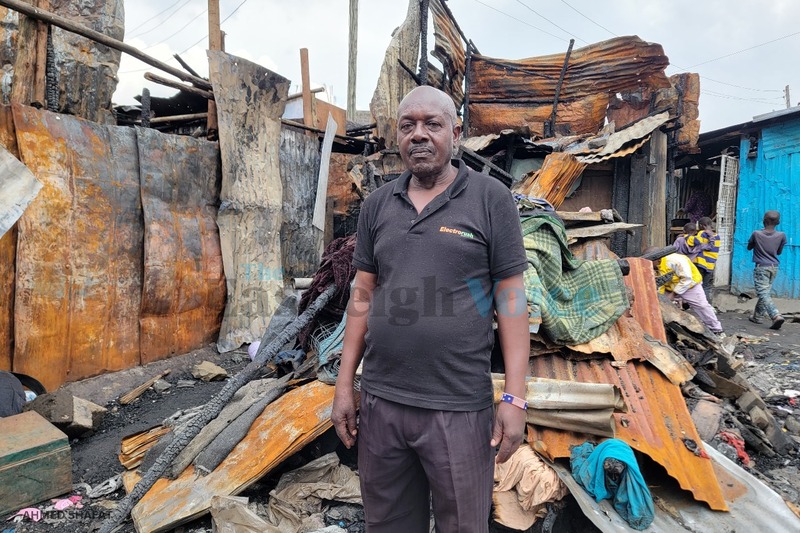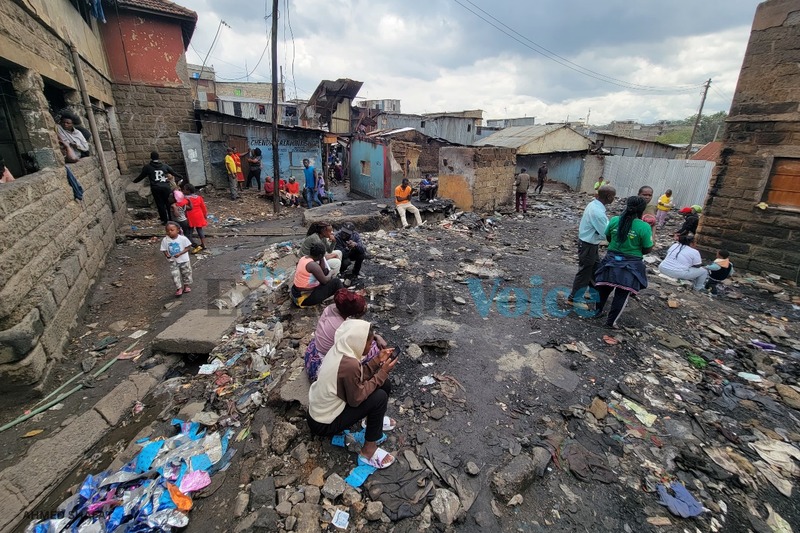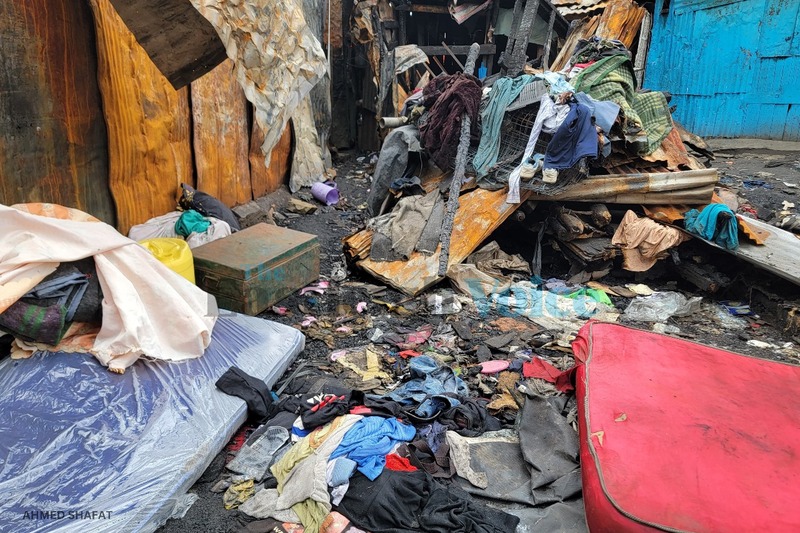Beyond the flames: Traumatised Kitui village residents call for psychological support after fire tragedy

The tragedy, which claimed seven lives, has left the residents devastated with some seeking psychological support.
For years, Reuben Otsembo, 69, carefully saved bit by bit to construct 10 rental rooms in Kitui village, Kamukunji constituency, with the hope of providing for himself, his five children, and 12 grandchildren as they worked to establish themselves.
However, a recent fire in the village destroyed everything he had worked for, leaving him, his children, and grandchildren homeless. The tragedy weighs heavily on his mind. Before the fire, he had purchased timber and iron sheets to repair the houses, as four rooms were essential to his livelihood.
More To Read
- Nairobi County on spot as gas explosion in Huruma kills eight, leaves 80 families homeless
- Fire guts several houses at Kanuku informal settlement in Kamukunji’s California Ward
- MP Yusuf Hassan donates food, blankets to victims of three Kamukunji fire incidents
- Creativity in crisis: Kitui village artisans fight to save Nairobi’s craft heritage after market fire
- State delivers relief aid to fire victims of Kasilili Village in Kamukunji's Airbase Ward
- Mother, four children killed in suspected love triangle arson attack in Isiolo
“I feel like I’m losing my mind. Losing everything is so hard, especially at this time. Now, everyone is looking to me for solutions, but I have no way of providing them,” he said.
He explained that while he is grateful for the material aid they have received, the lack of psychological support has been challenging. Watching everything they worked for go up in flames has been deeply traumatic.
“If you don’t have someone to walk alongside you through this journey, you could end up making harmful decisions. Consistent psychological support would be incredibly helpful at this time.”
 Some residents of Kitui Village whose houses were destroyed by a fire. (Photo: Ahmed Shafat)
Some residents of Kitui Village whose houses were destroyed by a fire. (Photo: Ahmed Shafat)
Before the fire, Reuben faced another personal tragedy. His two daughters had a violent confrontation with one of their acquaintances, leading to their arrest.
Now, with everything reduced to ashes, his family looks to him for support, but he has no stable income. The rent from the four rooms had been his primary source of stability, while the six-room house served as a home for him and his five children.
“I haven’t been able to go to work. I took out a loan for a motorbike, and at any moment, they could come for it because I hadn’t made my payments. When I look at everything, it’s really hard to cope. If I could get some help, like therapy or someone to talk to, to help me get back on track, I would be very grateful.”
He acknowledges that societal expectations often discourage men from expressing their emotions, but he is willing to open up. He hopes to talk to someone who will listen without judgment and offer support to help him heal from his trauma and loss.
Victims of the recent fire in Kamukunji's Kitui Village are seeking psychological support to cope with the trauma and loss of their property. pic.twitter.com/WHwxt9Kb0s
— The Eastleigh Voice (@Eastleighvoice) November 25, 2024
Rose Wavinya, 55, was paralysed with shock after the recent tragedy, leaving her unable to move for days. Despite the emotional toll, she finds strength in the support she has received from well-wishers and her local church community.
“This situation is not easy for anyone, but we are consoled by knowing that someone had it worse—they lost their entire family. Personally, what keeps me going is the counselling from well-wishers who come to see us.”
Wavinya highlights the significant role her church has played in her emotional recovery, noting that their support has helped her stay focused and positive. However, she is concerned that, despite the communal support, she and others affected by the tragedy have not had access to professional counselling. She appeals for further psychological assistance.
“We have benefited from the support of our local church, but we haven’t had access to professional counselling after the event. We are appealing for help, especially with psychological support.”
As the villagers attempt to recover, one landlord, who wishes to remain anonymous, continues to grapple with the loss. He hesitates to begin rebuilding, feeling it would be disrespectful to those who lost loved ones until the deceased are buried.
“It would seem like we don’t care. So, I will wait until they are buried and then figure out how to move forward,” he said.
The tragedy, which claimed seven lives, has left him devastated. “We were powerless as the fire raged, and it breaks my heart knowing we couldn’t save them.”
 The aftermath of the fire tragedy at Kitui Village in Kamukunji. (Photo: Ahmed Shafat)
The aftermath of the fire tragedy at Kitui Village in Kamukunji. (Photo: Ahmed Shafat)
Trauma impact
The increasing mental health challenges disproportionately affect vulnerable communities, where access to therapy or proper treatment is limited. Mary Akinyi, a counselling psychologist at Furaha Infinity, stresses the critical need to integrate mental health services into emergency response efforts to support traumatised individuals.
“Survivors of such tragedies are at risk of developing post-traumatic stress disorder (PTSD) and may experience depression, panic attacks, and other emotional challenges.”
She highlights the importance of conducting individual mental health assessments for those affected by traumatic events and providing tailored psychoeducation to help them understand and cope with their psychological responses.
Akinyi notes that fire trauma affects individuals physically and emotionally, necessitating a long-term recovery plan addressing both aspects.
The unpredictable nature of fire leaves survivors with a sense of powerlessness, constantly second-guessing whether they could have done more to protect themselves or others. Additionally, survivors often experience survivor’s guilt, replaying the events in their minds and feeling burdened by having lived while others perished.
“Survivors often relive the moments of panic and fear. The exposure to life-threatening danger can result in persistent guilt and emotional distress,” Akinyi explains.
The loss of homes and the associated sense of safety exacerbate the emotional toll. “Losing homes and a sense of safety intensifies feelings of grief and distress,” she adds.
To cope with such trauma, Dr Akinyi recommends building support groups where survivors can connect with others who have shared similar experiences. Social support, coupled with open communication with friends and family, is vital for emotional healing. She also advocates for trauma-informed care—a compassionate approach to aiding those who have experienced extreme distress.
“Creating a support group provides a community of people with shared experiences. Reaching out to others and discussing your feelings can significantly aid the healing process,” she advises.
Top Stories Today












































